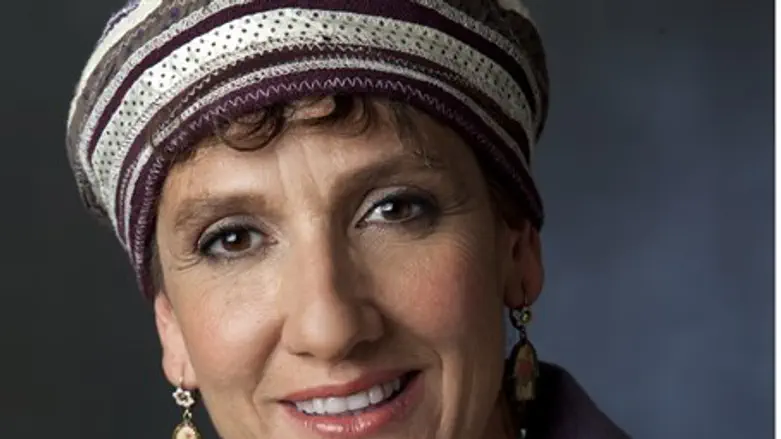
The Knesset passed, in the final readings, a law that mandates that four of 11 members of the committee that selects dayanim, or rabbinical court judges, must be women.
Four of the committee's members are government representatives: two ministers, and two MKs. Another two are representatives of the Bar Association. The law now stipulates that these “pairs” will be made up of one man and one woman each, thus guaranteeing three women in the committee.
In addition, the committee, which currently has ten members, will be enlarged to 11, and the additional member will be a "toenet rabbanit" – a female rabbinical pleader – who is to be appointed by the Justice Minister.
The law was debated for hours on end in the Knesset plenum, because all of the hareidi MKs presented objections to it, and many of them utilized the full 30 minutes that they were afforded, in order to speak against the change. The final vote took place at about 4:00 a.m.
The bill is a privately-presented one, sponsored by MK Aliza Lavie (Yesh Atid) and MK Shuli Moalem (Bayit Yehudi). It is the first privately presented bill to pass in the current Knesset.
In Israel, rabbinical courts preside over divorce proceedings involving Jewish couples. The rabbinical court system competes with a civil court system, the family courts, established in the mid-1990s by then-Supreme Court President Aharon Barak, which has authority over divorce as well. Once a divorce file is opened in one of the courts, the case will be decided in that court, but the civil courts have precedence over the rabbinical courts as regards child support. Rabbinical courts may determine the level of child support only if both sides to the proceedings agree that they do so.
In the past, it was commonly held that men “race” to the rabbinical courts in divorce while women “race” to the civil courts, because the former were considered more pro-male and the latter more pro-female. This may be true to some extent, but many experts now say that the rabbinical courts have adopted a much more "woman-friendly" line over the years, after having some of their authority taken away by the Supreme Court, especially when Dorit Beinisch was president.
Proponents of the appointment of women to the committee for appointing dayanim say that the rabbinical courts are controlled by the hareidi stream and are generally “pro-men” and “anti-women.” They claim that the dayanim create an environment that is hostile to women and that they grant men special privileges, based upon a strict interpretation of Jewish halakha, which they say is non-egalitarian in its approach to men and women.
While these claims enjoy near-consensus status in the non-hareidi world, other voices say that the Jewish religion balances the rights and duties of men and women, based on a dual-role concept, and point to "pro-female" discrimination in halakha, such as the exclusively male duty of paying child support, and the automatic preferment of women regarding custody of young children. These instances of blatant inequality, they point out, are not opposed by the stream that claims it is egalitarian.